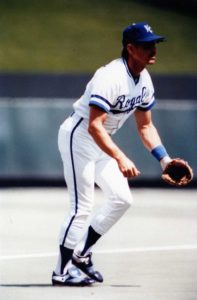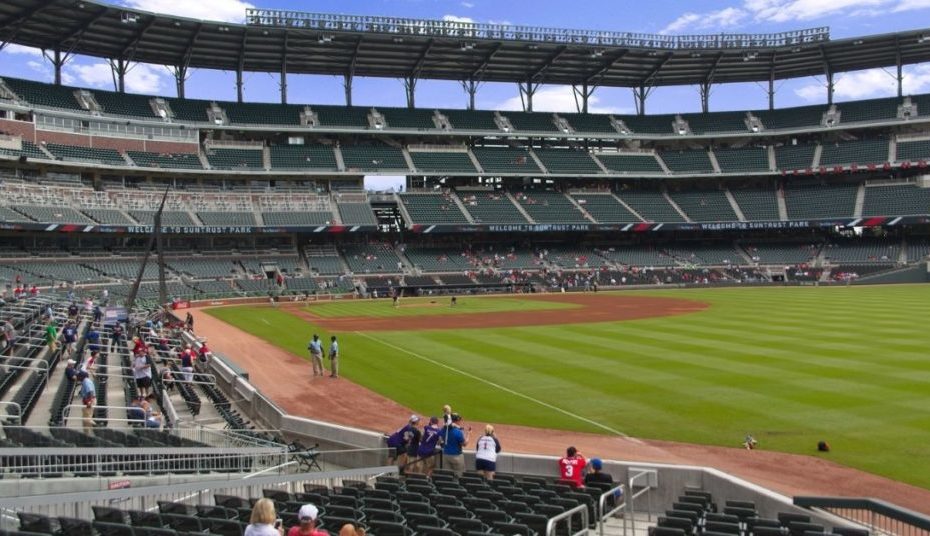“What Happens to MLB Players Now That The Baseball Season Is Over? by Greg Pryor
What a great World Series! The great game of baseball and another Fall Classic showed the world why, in my opinion, baseball is the best team sport ever invented. 
One of the bad things that happens to players on clubs that make the postseason, especially the Indians and the Cubs, is that they will have a much shorter off season. In just 4 short months (exactly 120 days), players on World Series teams will be reporting to spring training. The “real” MLB ballplayers know that their 2017 baseball season has already begun and they are not wasting time getting ready.
The story of the 2016 MLB World Champs began on the first day of spring training last March at their training site in Arizona. In reality, the beginning of a baseball season for a “real” MLB player begins on the day that his season ends. As one who participated in 16 seasons of pro baseball, the 7 month grind of no weekends off and an average of 28 games per month from March to October is not for the feeble minded or physically weak. No offense to the talented players in the NFL, NBA, and NHL who have their own tough grind, but I consider the “combined” mental and physical stress of a MLB season to be the toughest of all sports. Proper off season preparation by individual players is one of the most important aspects of winning a World Championship. The story of what George Brett did between the end of the 1984 and the beginning of the 1985 season is a good example.
In 1984, the Kansas City Royals won the American League West Division title but George had one of his worst seasons. For him, hitting a paltry .284 and driving in only 69 runs was very disappointing and he was challenged by the then-owner, Avron Fogelman, to show people the real Brett in ’85. George used the off-season to get ready and every Royals fan remembers what happened. George added 50 points to his average, doubled his RBI output and the Royals went on their first World Series crown. George put in the workout time during the off season and it paid off.
Next March, around 1,300 pro ballplayers, those on MLB rosters and invitees, will report to the MLB spring training sites of their team. Older players will be trying to keep their jobs and younger players will be trying to take someone else’s job. A few will report with jobs locked up because of the size of their contract or the high level of their ability. Regardless of any of that though, the amount of physical work that they all will have put in over the previous 5 months (but just 4 months for the World Series teams) will determine what kind of season that they, and their teams, will have.
Most MLB players have their own winter workout regimen. The team trainer will give them suggestions and workout schedules to follow but most players will be on their own program. Many MLB players hire personal trainers to oversee their grueling workouts and to hold them accountable for showing up and putting in the effort.
Being motivated to do effective off-season work is one thing, but the most difficult part of getting ready for another MLB season is to determine what exercises to do, what muscle groups to use, how often to exercise and how many hours or days to rest between exercises. Every off-season I would try and put on 10-15 lbs of muscle by hiring a trainer to “punish” me during workouts. I wanted to break my muscles down enough so that they would grow back stronger. At age 21, I weighed 165 pounds when I signed my first pro contract. Over my 10 yr. MLB career my weight was between 185-190 lbs. Had I not gotten stronger and quicker, I never would have earned a MLB job.
Another very important aspect of off season conditioning is the diet. Although MLB players probably eat nutritious meals, I am confident that most use some dietary supplements to help them recover more quickly from workouts. I did not know until after I was done playing that there are many nutrients not easily found in a decent diet that can have a wonderful effect on muscle recovery after workouts. Some are best used before workouts and some are best used afterwards.
In 1994, my wife and I formed a health and nutrition company called Life Priority, Inc. Life Priority can be located at www.lifepriority.com and offers a line of high quality, results-oriented, scientifically-formulated health supplements to the marketplace. If you are interested in learning how to get better workouts as a pro player or a weekend warrior, please contact me at customerservice@lifepriority.com. I will be glad to help evaluate your current regimen and offer time-tested solutions to help you get better results from your workouts. In 1991, I became a customer of the Life Priority products and, because of my results and the results of others, I joined the health industry. Make your decision now! The “off season” is shorter than you think! Get ready for a great 2017!
